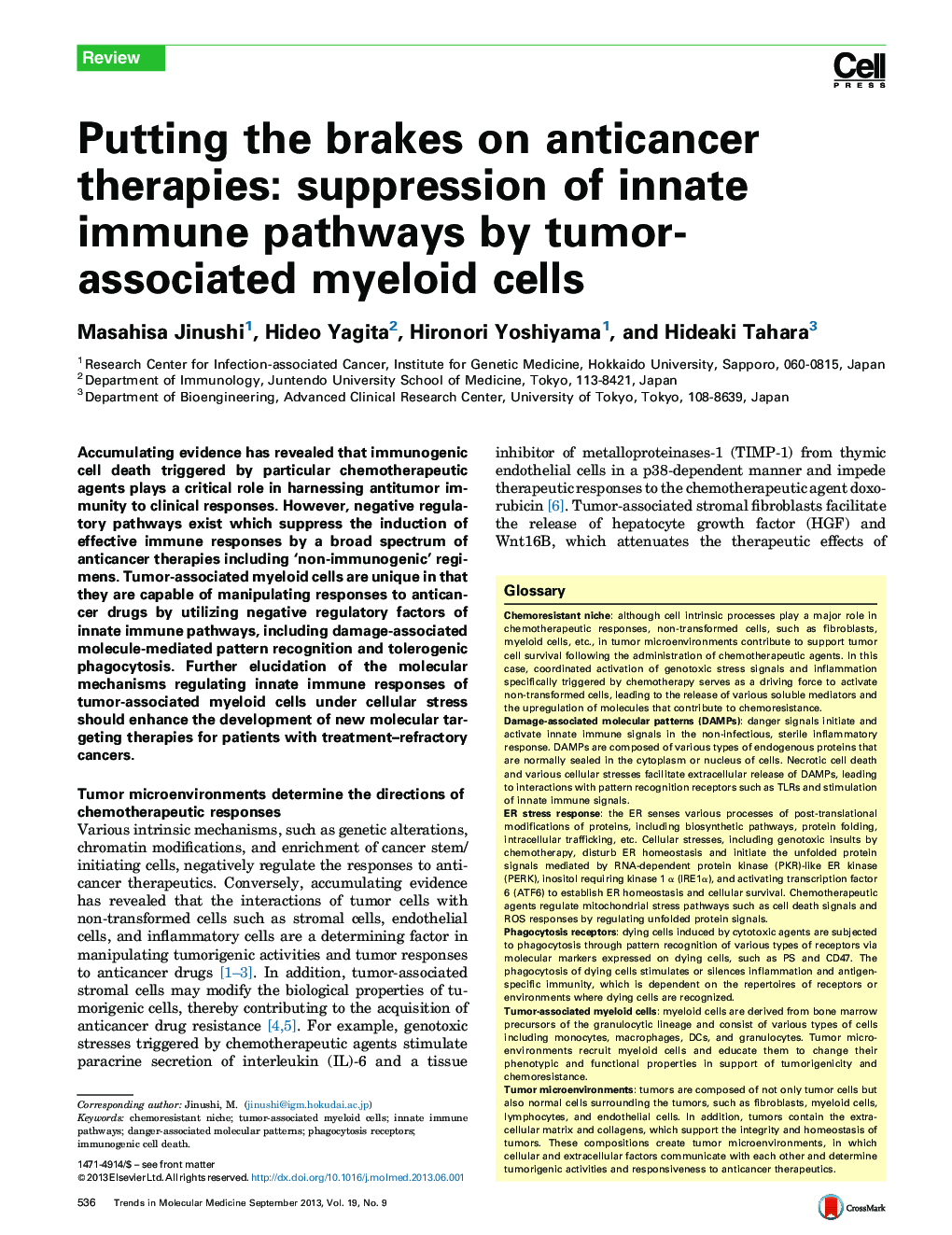| کد مقاله | کد نشریه | سال انتشار | مقاله انگلیسی | نسخه تمام متن |
|---|---|---|---|---|
| 2838588 | 1165030 | 2013 | 10 صفحه PDF | دانلود رایگان |

• Tumor-associated myeloid cells are key sentinels linking innate immunity with chemoresistance.
• Tumor modulation of DAMP-mediated signals in myeloid cells induces chemoresistance.
• Tumor regulation of phagocytic pathways in myeloid cells induces chemoresistance.
• Targeting negative pathways in myeloid cells may overcome chemoresistance and clinical responses.
Accumulating evidence has revealed that immunogenic cell death triggered by particular chemotherapeutic agents plays a critical role in harnessing antitumor immunity to clinical responses. However, negative regulatory pathways exist which suppress the induction of effective immune responses by a broad spectrum of anticancer therapies including ‘non-immunogenic’ regimens. Tumor-associated myeloid cells are unique in that they are capable of manipulating responses to anticancer drugs by utilizing negative regulatory factors of innate immune pathways, including damage-associated molecule-mediated pattern recognition and tolerogenic phagocytosis. Further elucidation of the molecular mechanisms regulating innate immune responses of tumor-associated myeloid cells under cellular stress should enhance the development of new molecular targeting therapies for patients with treatment–refractory cancers.
Journal: - Volume 19, Issue 9, September 2013, Pages 536–545